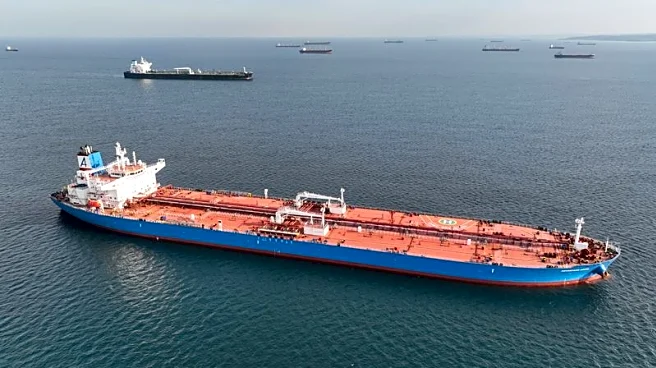By Robert Harvey, Ahmad Ghaddar and Enes Tunagur
LONDON/MOSCOW (Reuters) -Turkey's largest oil refineries are buying more non-Russian oil in response to the latest Western sanctions on Russia, two people
with direct knowledge of the matter and several industry sources told Reuters.
Turkey is a major buyer of Russian crude along with China and India. Turkish refiners are now taking similar steps to those in India, a sign of the impact of U.S., European Union and UK efforts to clamp down on Russian oil sales used to fund the war in Ukraine.
One of the largest Turkish refineries, SOCAR Turkey Aegean Refinery (STAR), owned by Azeri company SOCAR, has recently bought four cargoes of crude from Iraq, Kazakhstan and other non-Russian producers for December arrival, according to the sources.
This amounts to 77,000 to 129,000 barrels per day (bpd) of non-Russian supply depending on cargo size based on Reuters calculations, and means SOCAR will be using less Russian crude.
Russian crude amounted to virtually all of the STAR refinery's crude intake in October and September of about 210,000 bpd, according to Kpler data.
One of the four cargoes is a Kazakh KEBCO shipment, two sources said, the same in quality as Russian Urals crude, but sourced from Kazakhstan. SOCAR's STAR refinery imported just one other cargo of the Kazakh grade this year, and none in 2024.
The other major Turkish refiner - Tupras - is increasing purchases of non-Russian grades similar in quality to Russian Urals, for example Iraqi grades, two of the sources said, without giving further details.
The moves by the Turkish refiners to boost purchases of non-Russian crude due to the latest sanctions have not been previously reported.
Tupras, which owns two major refineries in Turkey, is also likely to completely phase out Russian crude imports at one of these plants soon so that it can maintain fuel exports to Europe without falling foul of the EU's incoming sanctions, two sources said. The company would continue processing Russian crude at the other refinery, they said.
SOCAR declined to comment. Tupras did not respond to a Reuters request for comment.
Tupras has already diversified its crude supply this year, buying its first-ever cargo from Brazil and is currently waiting to receive its second ever cargo of Angolan crude, a Mostarda cargo due to arrive in early November.
Turkey is set to receive 141,000 bpd of Iraqi crude in November, according to Kpler, up from 99,000 bpd in October and compared with around 80,000 bpd on average this year. December data is not yet available.
Turkey imported around 669,000 bpd of crude oil over January-October, data from Kpler show, of which 317,000 bpd, or 47%, was Russian.
That compares with 580,000 bpd of crude imports over the same period last year, of which 333,000 bpd was from Russia.
(Reporting by Robert Harvey, Ahmad Ghaddar and Enes Tunagur in London, Reuters reporters in Moscow. Editing by Alex Lawler and Sharon Singleton)










